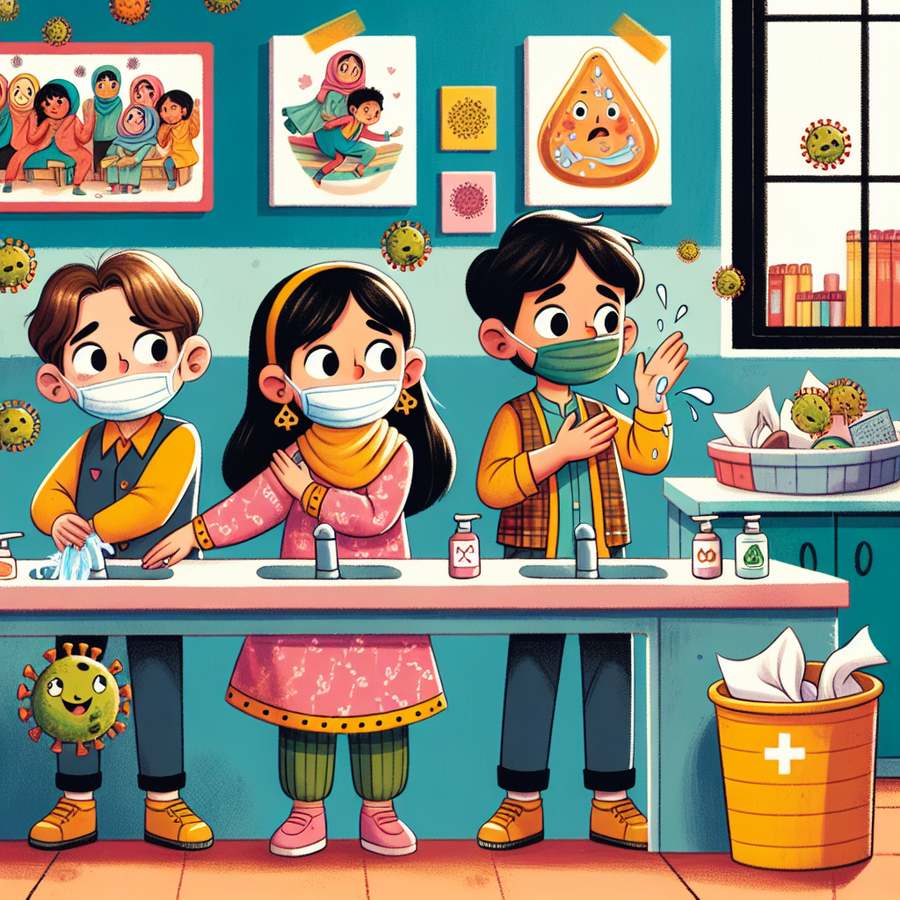Rotavirus is a common cause of viral gastroenteritis among infants and young children worldwide. It’s essential for new parents to understand what Rotavirus is, how it spreads, and most importantly, how to prevent and manage it. This comprehensive guide aims to arm you with knowledge and practical tips to keep your little one safe.
What is Rotavirus?
Rotavirus is a highly contagious virus that primarily affects infants and young children, leading to severe diarrhea, vomiting, fever, and dehydration. It is the most common cause of diarrheal disease among children under five. According to the World Health Organization, Rotavirus results in the death of over 200,000 children each year worldwide, mostly in developing countries. However, with the introduction of the rotavirus vaccine, the number of cases and severity of the disease has significantly decreased in countries where the vaccine is widely available.
Despite its global impact, many parents are not fully aware of the symptoms and treatments available for Rotavirus. Recognizing the signs early on can lead to quicker recovery and prevent severe dehydration and hospitalization.
How Does Rotavirus Spread?
Rotavirus is known for its easy and rapid spread among children, particularly in settings like daycares and preschools. The virus is transmitted through the fecal-oral route, meaning it can spread through contaminated hands, surfaces, objects, or food and water. A child can contract Rotavirus by putting their hand or a contaminated object into their mouth. This high contagion rate underscores the importance of good hygiene practices to prevent the spread of Rotavirus.
It’s worth noting that Rotavirus can survive on hands and surfaces for several hours and on hard, non-porous surfaces for days. Therefore, regular hand washing, proper sanitation of toys and surfaces, and teaching children about good hygiene can significantly reduce the risk of Rotavirus infection.
Symptoms of Rotavirus Infection
The symptoms of Rotavirus infection can range from mild to severe and typically appear within two days after exposure to the virus. Common symptoms include watery diarrhea, vomiting, fever, and abdominal pain. In severe cases, Rotavirus can lead to dehydration, which is the most serious complication of the infection. Signs of dehydration include decreased urination, dry mouth and throat, dizziness, and lethargy. It’s crucial for parents to monitor their children’s symptoms closely and seek medical attention if signs of dehydration appear.
Fortunately, with supportive care, most children recover from Rotavirus infection within three to seven days. Treatment focuses on preventing dehydration by ensuring the child stays well-hydrated. Oral rehydration solutions (ORS) are commonly recommended to replace lost fluids and electrolytes. In more severe cases, hospitalization may be necessary to administer intravenous fluids.
Prevention and Vaccination
The most effective way to prevent Rotavirus infection is through vaccination. The Rotavirus vaccine is safe and effective and is part of the routine immunization schedule for infants in many countries. The vaccine significantly reduces the risk of severe illness, hospitalization, and death caused by Rotavirus. Parents should consult their healthcare provider to ensure their child is up-to-date with the Rotavirus vaccine and other routine immunizations.
In addition to vaccination, practicing good hygiene is key to preventing the spread of Rotavirus. This includes frequent handwashing with soap and water, especially after changing diapers, before feeding your child, and upon returning home from public places. Sanitizing toys, surfaces, and items that your child frequently touches can also help reduce the risk of Rotavirus and other infections.
When to See a Doctor
If your child shows signs of Rotavirus infection, such as persistent vomiting, diarrhea, fever, or signs of dehydration, it’s important to consult a healthcare provider. Early medical intervention can prevent complications and ensure a speedy recovery. Your healthcare provider can also provide guidance on care at home and when it might be necessary to seek hospital care.
Parents should also be aware of the importance of hydration and how to recognize signs of dehydration in their children. It’s always better to err on the side of caution and consult a healthcare provider if you’re unsure about your child’s symptoms or health status.
Understanding Rotavirus and taking proactive measures for prevention can help protect your child from this common but preventable virus. By staying informed, vaccinating your child, practicing good hygiene, and knowing when to seek medical advice, you can ensure your child’s safety and well-being.













